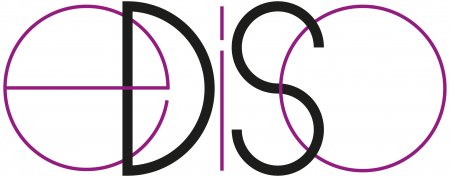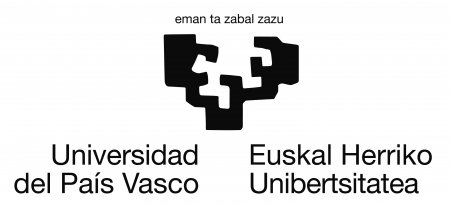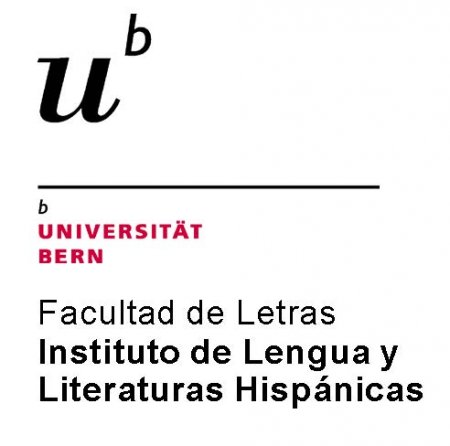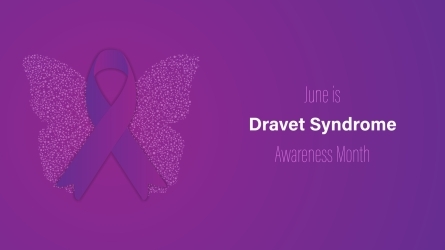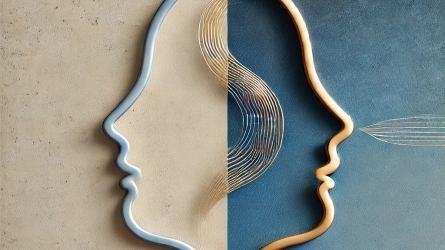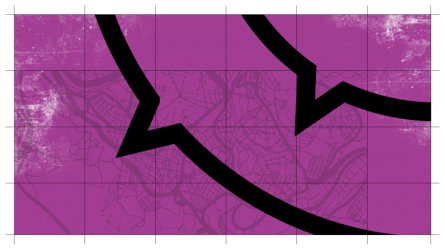
VII EDISO Symposium
Transversalities, crossings and peripheries. Methodological approaches in discourse and society studies in the 21st century
Description
Welcome to the 7th edition of the Symposia of the Asociación de Estudios del Discurso y Sociedad (EDiSo), which this time is organized around the theme “Transversalities, intersections, and peripheries. Methodological approaches in discourse and society studies in the 21st century”. The symposium will take place on 2-4 July 2025 at the University of the Basque Country (in Bilbao, Bizkaia Aretoa), Spain. This is the first time that this meeting is organized in the Basque Country and we are very excited about it. In this seventh edition we seek to offer a platform to interact with the different methods that are currently being used to study the relationships between discourse and society: mixed methods, multimodal methods, computational and experimental methods, new ethnographic and creative methods, among many others. The meeting will be in person.
The current EDiSo Board and the local organizing committee
INDIVIDUAL COMMUNICATIONS AND OPEN PANELS
Proposals for individual communications or for open panel will have a maximum of 400 words (without bibliography). Only a maximum of two proposals per author is possible. Mandatory inclusion of a maximum of four keywords per summary.
- Reception of proposals from 10/15/2024 to 11/30/2024.
- Applications with the following MODEL through this FORM
- You can find the proposals for open panels at this link: https://drive.google.com/drive/folders/11y3_V_aIXwOR1adBcuv-CXEXVy_Qilai
ACCOMMODATION
A list of hotels in Bilbao is provided here.
Scientific Committee VII Simposio EDiSo
- Jokin Aiestaran, Universidad del País Vasco
- Cristina Aliagas, Universitat Pompeu Fabra
- Daniel Amarelo, Universitat Oberta de Catalunya
- Carla Amoros, Universidad de Salamanca
- Miren Artetxe, Universidad del País Vasco
- Eva Alberione, Universidad Nacional de Córdoba, Argentina
- Encarna Atienza, Universitat Pompeu Fabra
- Yvette Bürki, Universität Bern
- Lucía Cantamutto, Universidad Nacional de Río Negro
- Josep M. Castellà, Universitat Pompeu Fabra
- Eva Codó, Universitat Autònoma de Barcelona
- Ernesto Cuba, University of Washington
- Agurtzane Elordui, Universidad del País Vasco
- Marta Estévez Grossi, Universidade de Santiago de Compostela
- Branca Falabella Fabrício, Universidade Federal do Rio de Janeiro
- Cristian González, Pontificia Universidad Católica de Valparaíso
- Fernando Guzmán, Universidad de Sevilla
- Daniela Lauria, Universidad de Buenos Aires
- Aitzpea Leizaola, Universidad del País Vasco
- Júlia Llompart, Universitat Autònoma de Barcelona
- Carmen López Ferrero (Universitat Pompeu Fabra)
- Cecilia Magadán, Universidad Nacional de San Martín
- Luisa Martín Rojo, Universidad Autónoma de Madrid
- Emilee Moore, Universitat Autònoma de Barcelona
- Adil Mostaoui Sghir, Universidad Complutense de Madrid
- Teresa Oteíza Silva, Universidad Católica de Chile
- Adriana Patiño, University of Southampton
- Carolina Pérez Arredondo, Universidad de O’Higgins
- Miguel Pérez-Milans, University College London
- David Poveda, Universidad Autónoma de Madrid
- Gabriela Prego, Universidade de Santiago de Compostela
- Ana María Reaño Pastor, Universidad de Castilla-La Mancha
- Viviane Resende, Universidad de Brasilia
- María Florencia Rizzo, Universidad Nacional de San Martín
- Iñaki Sagardoy, Universidad Pública de Navarra
- María Florencia Sartori, Universidad Nacional de San Martín
- Agostina Iglesias Sánchez, Universidad Nacional de Córdoba
- Matías Soich, Universidad de Buenos Aires
- Josep Soler Carbonell, Stockholm University
- Cecilia Tallatta, Universidad Nacional de San Martín
- Samara Velte, UPV/EHU
- Mònica Daisy Vieira Araujo, Universidade Federal de Minas Gerais
- Claudia Vallejo Rubinstein, Universitat Autònoma de Barcelona
- Luz Zas Varela, Universidade de Santiago de Compostela
- Mónica Zoppi Fontana, Universidad Estadual de Campinas
Local Committee VII Simposio EDiSo
- Jokin Aiestaran, Universidad del País Vasco, UPV/EHU
- Miren Artetxe, Universidad del País Vasco, UPV/EHU
- Agurtzane Elordui, Universidad del País Vasco, UPV/EHU
- Lamia Filali-Mouncef, Universidad del País Vasco, UPV/EHU
- Graxi Irigaray, Universidad del País Vasco, UPV/EHU
- Aitzpea Leizaola, Universidad del País Vasco, UPV/EHU
- Miren Otxotorena, Universidad Autónoma de Madrid
- Elixabete Pérez Gaztelu, Universidad de Deusto
- Samara Velte, Universidad del País Vasco, UPV/EHU
Objectives
The objective of this symposium is to strengthen communication and cooperation between scholars who deal with discourse analysis from different perspectives and epistemic fields. As with all editions of the EDiSo community symposia, this 7th edition also seeks to exchange knowledge and experiences on the most recent advances in the field of discourse studies and to create synergies from the different areas working on discourse.
Activity directed to
- All public
- University student
- Students not from university
- Teachers
- Professionals
Methodology
The EDiSo 2025 symposium will include plenary sessions, papers, workshops and a round table. EDiSo's language policy is multilingual with the aim of promoting linguistic inclusion and equality. The languages of the symposium are Spanish, Catalan, Basque, Galician and Portuguese, as well as English. Each speaker speaks in the language of their choice, ensuring, through the use of visual (e.g. PPT) and audio (e.g. simultaneous interpretation) resources, that their speech reaches the audience. This methodology has already been successfully tested in the different editions of the EDiSo symposium. The symposium mode is offline with the possibility of streaming for the plenary sessions and the round table.
In collaboration with
Directors
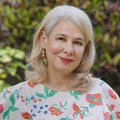
Yvette Buerki
Universität Bern
Yvette Bürki is a Titular professor at the Instituto de Lengua y Literaturas Hispánicas of the Universität Bern (Switzerland) where she heads the Linguistics section. Her research fields focus on critical sociolinguistics, critical discourse analysis, and sociocultural linguistics. She works on peripheral varieties of Spanish, as well as semiotic and discursive manifestations of minoritized ethno-linguistic groups, focusing on linguistic identities and ideologies. She has published numerous chapters and journal articles, as well as thematic issues, such as Variedades olvidadas del español (2016, with Laura Morgenthaler García, Ruhr-Universität Bochum), Desafíos metodológicos en la sociolingüística hispánica actual (2020, with Caroline Patzelt, Universität Bremen), and Actores humanos en las políticas y planificaciones lingüísticas. Agencia, ideología y prácticas (2023 with Anik Nandi, Woxen University). Her recent publications focus on Spanish as a heritage language and on language policies of Spanish-speaking and/or bilingual families in German-speaking Switzerland.
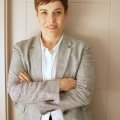
Agurtzane Elordui Urkiza
EHU
The researcher and professor Agurtzane Elordui works on the field of Sociolinguistic applied to the media. She teaches on language and communication at the degrees and masters of the Faculty of Social Sciences and Communication. Her research interests are focused on sociolinguistics and media discourse studies. Her current research interests include language ideologies, minority languages, multilingual practices in social media, stylization in audio-visual discourse and performance, and sociolinguistic and ideological change among Basque youth. Nowadays she is a member of the NOR Research Group (IT881-16). Within that research group, and in collaboration with the University of Navarre and the CNRS of France (University of Bayonne), shehas been the principal researcher of the Project 'Gaztesare, Multilingualism and glocal identities among Basque youth in the social networks', 2018-22. Today she leads the project 'Youth Voices: youth culture, Basque and linguistic ideologies' and she is responsible for the Basque Country of the project' Estandarev. Revision of linguistic standardization: mediatization, vernacularization and linguistic ideologies in contemporary Spain'.
Speakers

Germán Canale Fazzini
Universidad de La República, Uruguay
Ph.D. in Second Language Acquisition (Carnegie Mellon University), Associate Professor in the Department of Social Studies of Language (Institute of Linguistics, FHCE, Universidad de la República, Uruguay). He leads the research group “Discourse Analysis in Society” and is a Level II Researcher in the National Researcher System (ANII, Uruguay). His research focuses on critical discourse analysis, ethnographic approaches to discourse, and multimodality.

Jone Miren Hernández García
UPV/EHU
I graduated in Social Sciences and Communication (UPV/EHU) in the early 1990s, a time that coincided with my journey toward becoming fluent in Basque. This period marked the beginning of my research into various phenomena related to language. A milestone in this three-decade trajectory was completing my doctoral thesis under the supervision of Teresa Del Valle, whose mentorship steered my interests toward the anthropology and ethnography of language, and strengthened my commitment to feminist theory and methodology. Language(s) and feminism(s) are the two core pillars of my research and teaching practice, applied across diverse areas of study. Among the most recent are the analysis of bertsolarism (the Basque tradition of improvised poetry) and work with young Basque speakers - the latter in collaboration with Jaime Altuna Ramirez. Additionally, since 2020, I have been involved in the EquiLing project, which aims at developing critical sociolinguistics. Although I have published in Spanish and English, I consider myself part of a “situated” scientific community that produces knowledge in Basque.

Virginia Unamuno Unamuno
Universidad Nacional de San Martín, Argentina
Virginia Unamuno is the principal researcher of CONICET and a full professor of Sociolinguistic Studies at the National University of San Martín (Argentina), where she also directs the Center for Language Studies in Society (CELES). After over a decade working in Catalonia, she has conducted research since 2010 in the province of Chaco (Argentina) in collaboration with indigenous teachers and institutions. She is a specialist in multilingualism studies from various perspectives, and is currently focused on indigenous agency in the creation of language policies through ethnographic and collaborative approaches. She has published books and articles in specialized journals, including “Lenguas, diversidad y escuela”, “Usos i competències multilingües entre escolars d’origen immigrant” (co-edited with Luci Nussbaum); “Prácticas y repertorios plurilingües en Argentina” (co-edited with Angel Maldonado); “Lenguaje y educación” y “Hablar lenguas indígenas hoy” (co-edited with Carolina Gandulfo and Héctor Andreani).
Registration fees
- Registration openning: March 3
- Registration reserved for EDISo members.
- You can check your member number from https://www.edisoportal.org/ + LOGIN. | Help image: Access to EDISo
| Registration | Until 03-04-2025 | Until 25-06-2025 |
|---|---|---|
| 150,00 EUR | 180,00 EUR | |
| 100,00 EUR | 120,00 EUR |
Venue
Bizkaia Aretoa-UPV/EHU
Avenida Abandoibarra, 3. 48009- Bilbao
Bizkaia
Bizkaia Aretoa-UPV/EHU
Avenida Abandoibarra, 3. 48009- Bilbao
Bizkaia
